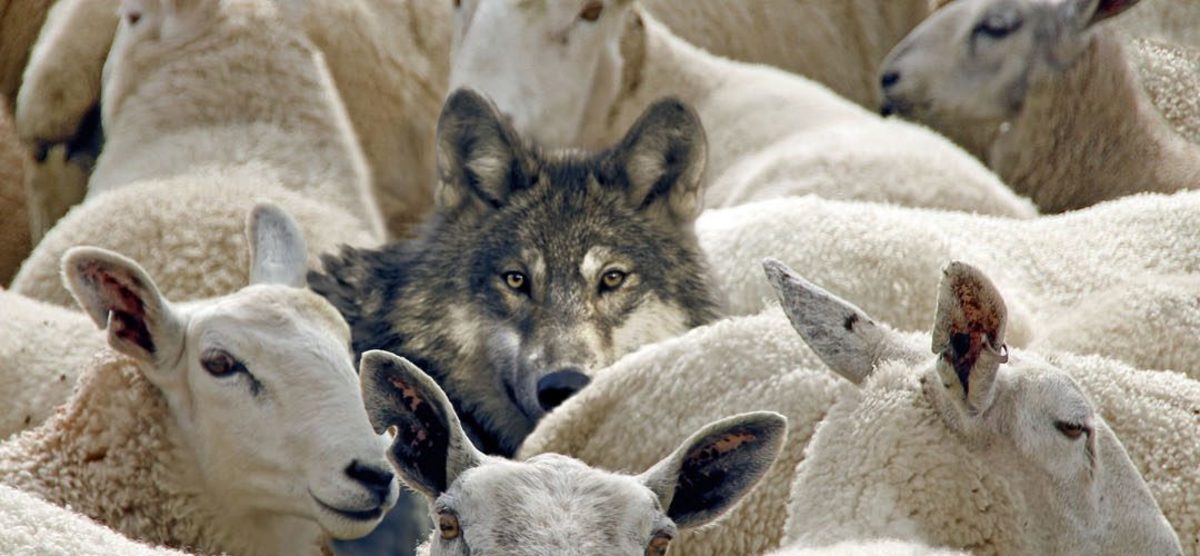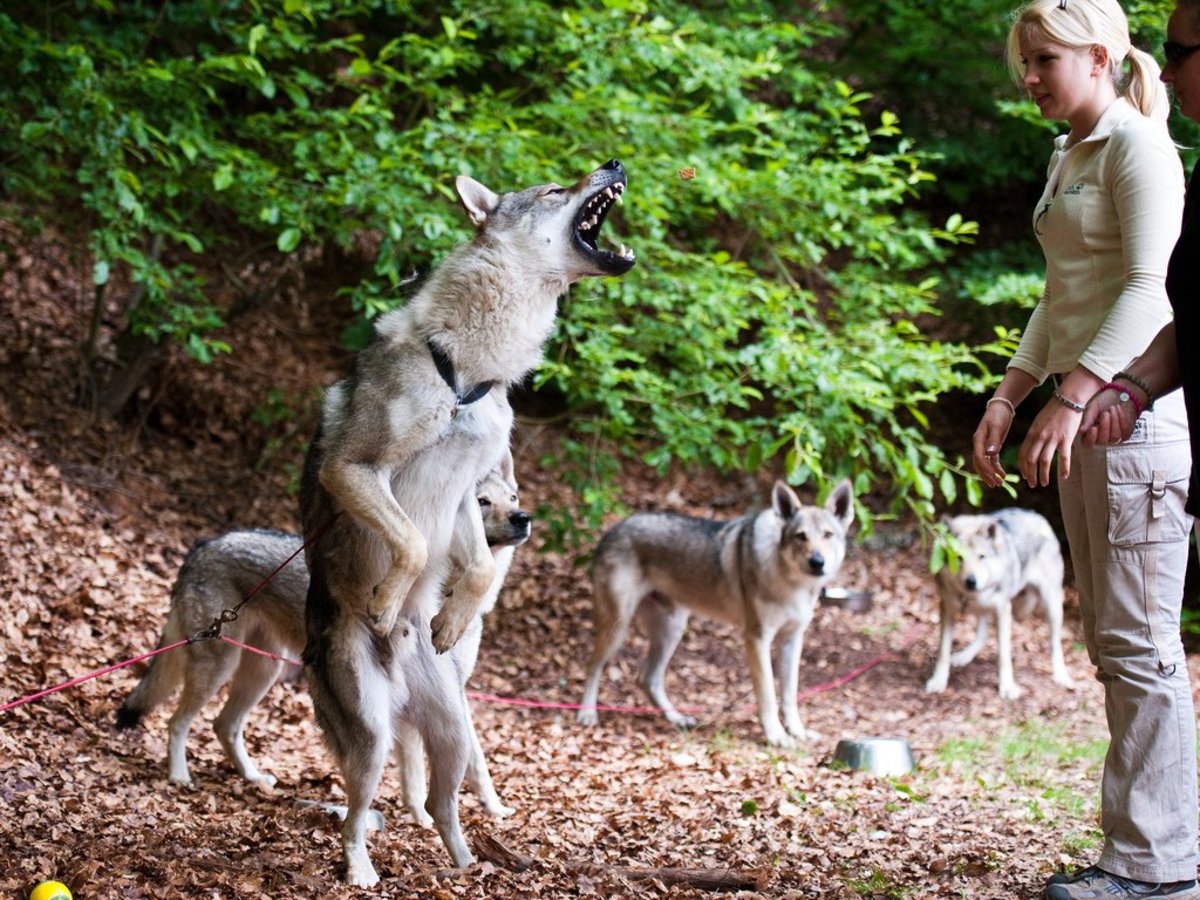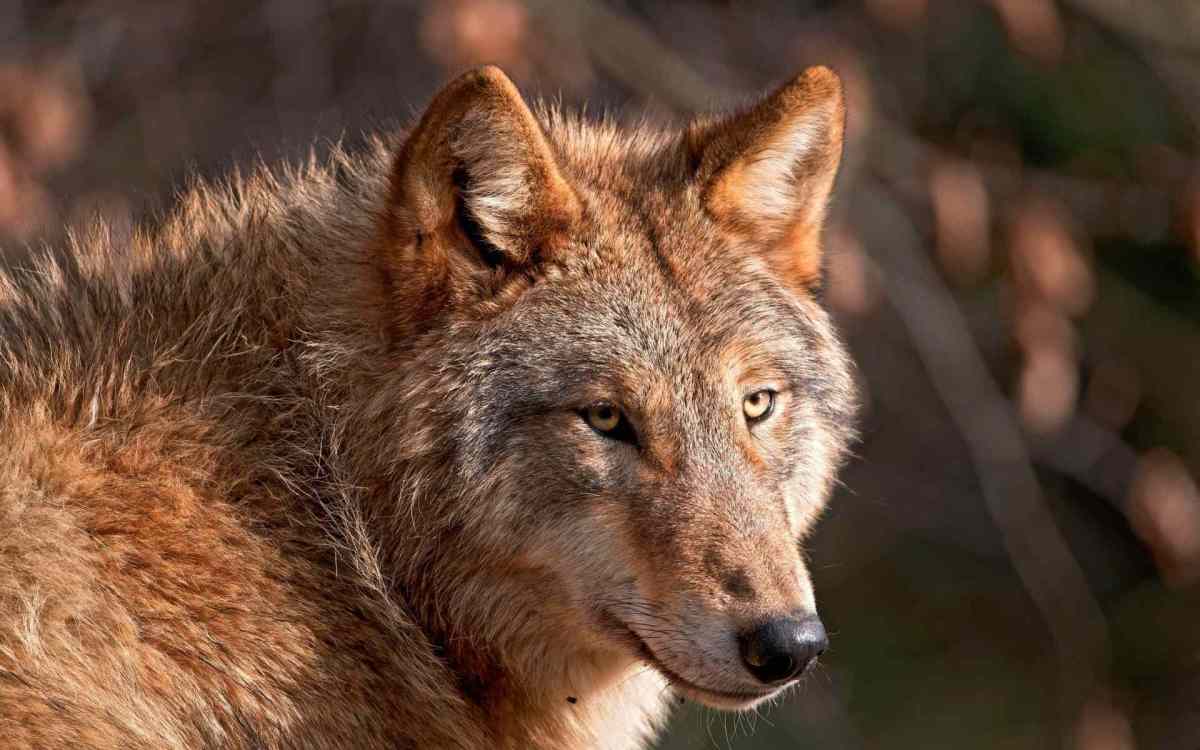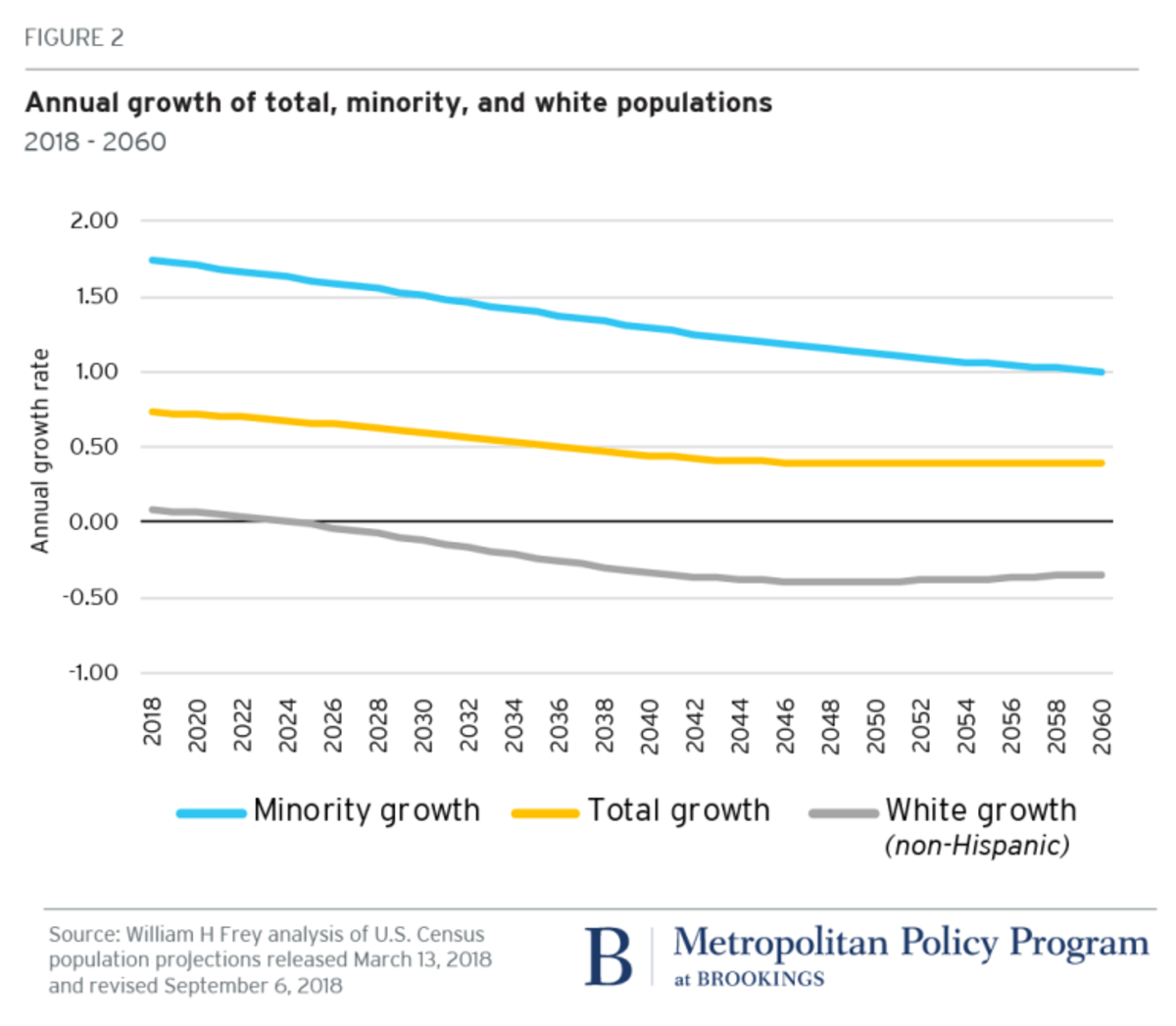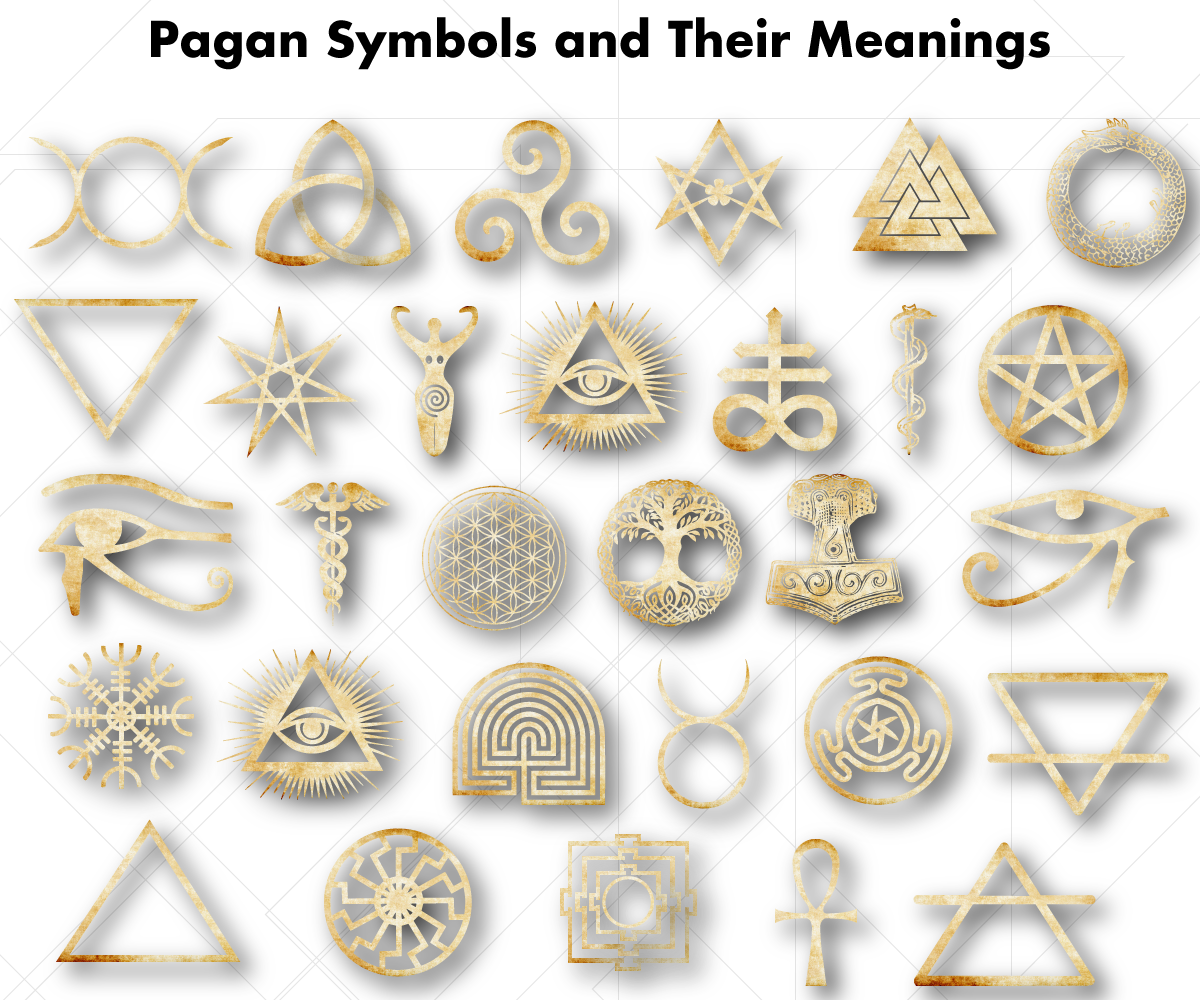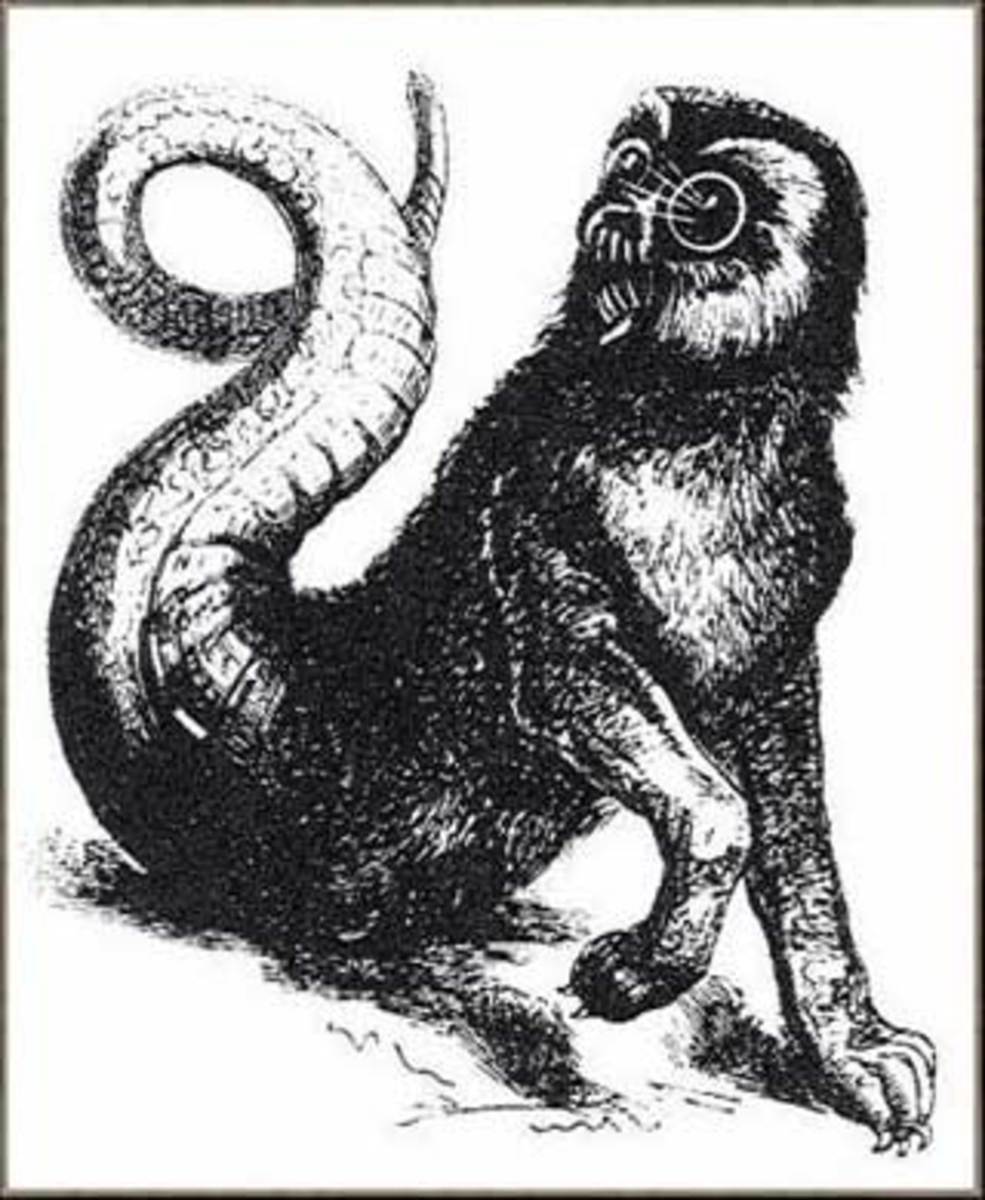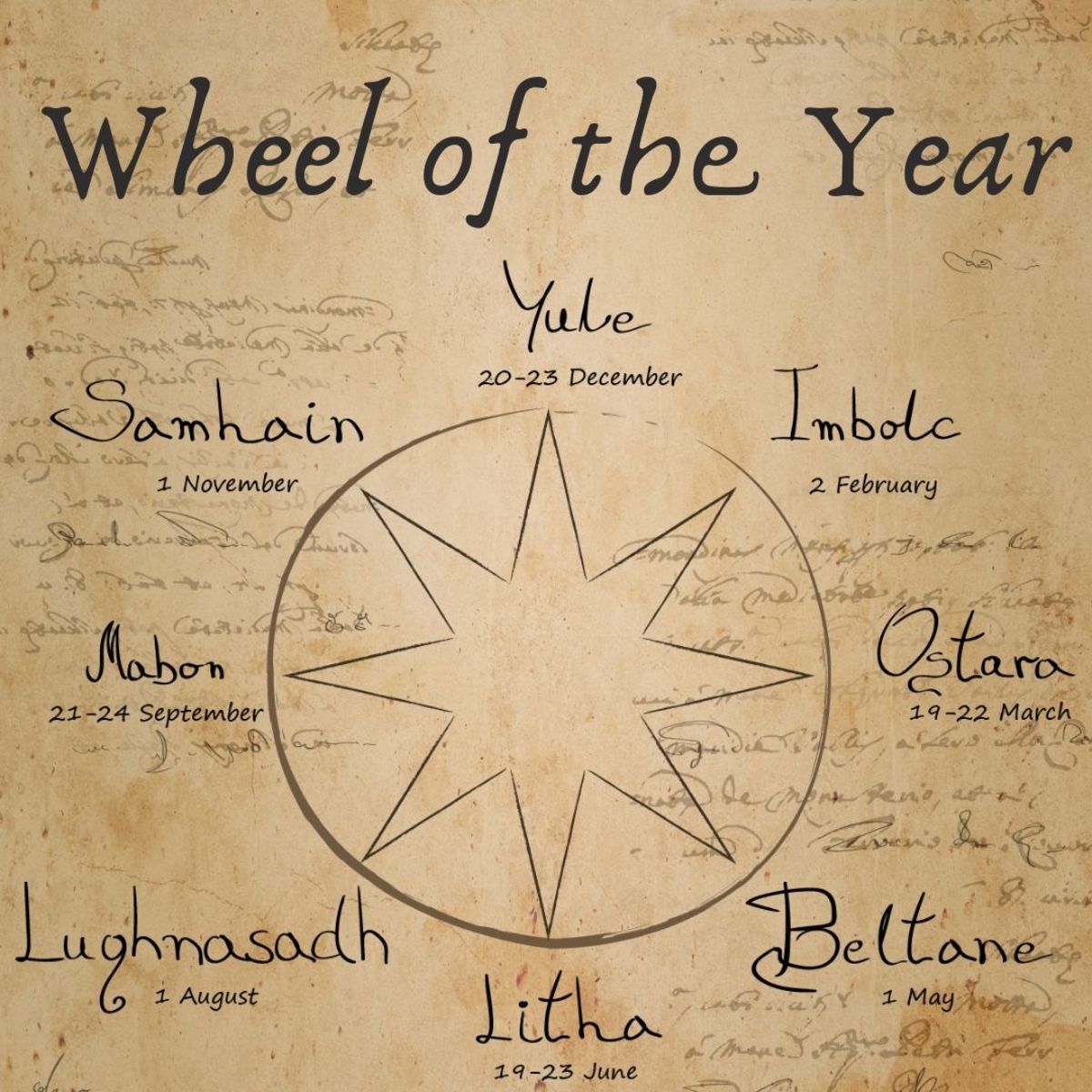Why Are There So Many Wolf-People?
There's a lot of trash-talk and hate out there in the public eye when it comes to "white people" trying to get in touch with their own deeper, indigenous, tribal roots. I've seen it all, and because I've let it all get to me in the past and weigh me down, I won't repeat the silly arguments that label everything that isn't Christian as appropriation or that tell "white people" what spiritual words they are not allowed to use simply because of their skin color. Words like shaman, power animal, spirit animal and totem are important touchstones that have been in English for a long time now, providing a shaky ladder out of the spiritual pit that we'd all be stuck in together forever if we act like a bunch of crabs in a stewpot, constantly pulling each other down instead of working together to help each other up and out of this ever-worsening paradigm of negativity and pollution (both physical and emotional) that we're all responsible for, regardless of our skin color. The key to moving forward is in the doing, in the self-responsibility to set aside the drama and actually do the spiritual work, whatever your path, whatever words you use to describe the path, and to offer a gentle, helping hand back to those who are still learning their way.
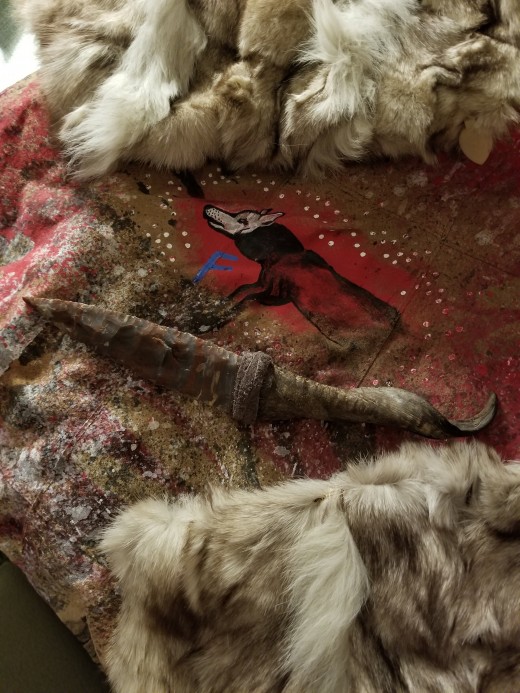
When someone tells me their spirit animal is the wolf, I smile and welcome them to run with me. I don't judge them. I don't roll my eyes. I don't tell them they're not allowed to use the words "spirit animal" because of their skin color. I don't try to lead them toward an obscure animal totem that *I* feel fits them better, like a tapir, a scrub jay or something else they've never heard of before. I know what it feels like to deal with all of that, and I'm not going to put someone else through it. I knew from an early age that I had a deeper spiritual connection to Wolf as a totem, as an archetype or as a fylgja echo of the larger, deeper whole that is Wolf, but the only word I had to describe it at that time was "spirit animal." Wolf was always there, but I had to earn my way into the pack, not just through study, but through the confidence built by facing those people who would roll their eyes at me and tell me I needed to pick a different totem because Wolf is "too common."
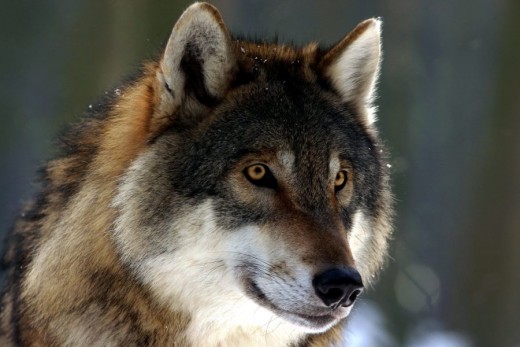
So, instead of asking why people so commonly pick Wolf as a totem, I think we need to ask why Wolf so commonly picks certain people to run alongside her. People who feel a kinship with Wolf have always been common on the Eurasian continent and in North America, so even on that very basic level, it makes sense that European/Eurasian-descended people who have immigrated to America would feel that call as well. It's in land, and it's in the blood, literally, if you go back far enough into some of the indigenous mythologies of both continents. In Europe and in North America both, there are countless tribal lineages (in Europe, you really gotta dig for them) that claim descent directly from a spiritually significant wolf. The most well-preserved of these kinship mythologies in Europe is probably that of Asena, the Turkic sky-wolf-mother, though we also see echoes of it in Norse mythology through Snorri's vague mention of Vithulfr, Mother of Shamans (the ancestor of Volvas specifically, who were Norse witches that practiced Seidr, arguably a form of Germanic Shamanism.) I could write a whole book on wolves as ancestors, (and perhaps someday I will,) but for now, I'll leave that avenue of research open to you for you to explore and have fun with.
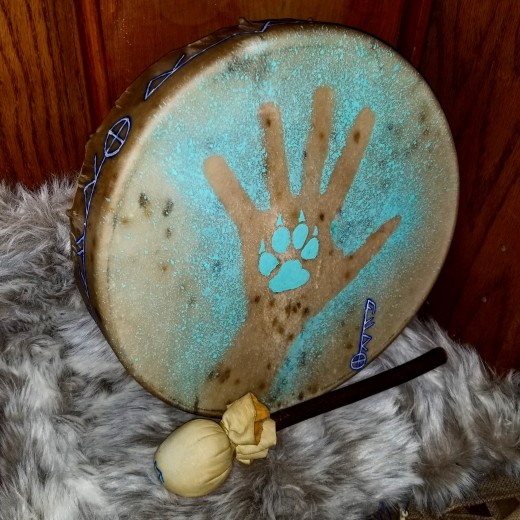
Beyond sharing kinship with wolves (read more about this concept on my post titled "The Wolves of Frey,") another reason why Wolf seems so common as a totem is simply that we wolves tend to gravitate toward one another, toward the pack. We are independent by nature, but our independence is still only an individual independence within a greater, unified pack. Lone wolves are romanticized in the West, but in the wild, the state is ultimately either a temporary part of youth or ends in starvation and death. Rare is the wolf individual who can exist alone forever.
Measured against the grand ocean of the whole of humanity, we who hear the call of Wolf are actually relatively few in number, but we are loud and we are typically drawn to the same avenues of spiritual experience and exploration, so we get a false sense that everyone who talks about their totems, power animals or fylgja is claiming to be a wolf-person. The call of Wolf is loud on the spiritual plane and even with people who aren't primarily drawn to wolves, Wolf is one of the totems that often takes the lead as awakener, or the "Opener of the Ways," carrying the soul through the trials and research and practice that are needed to grow on one's spiritual path. Walking with Wolf also provides a great test of confidence and self-honesty. Being drawn to Wolf isn't enough. If you are called to truly experience the depths of Wolf as a totem, you'll have to stand confidently before the pack, the mass of people who claim kinship with the Wolf, and ask yourself if you are Wolf enough in core and in blood to run with the astral pack. Don't worry about the answer now. When the test comes, you'll know it. You'll feel it. You'll feel the certainty of who you are and the strength of your connection with the totem in the core of your soul. If you don't, there's nothing wrong with that. No totem is inherently better than any other, only better for those who hear their call the loudest.
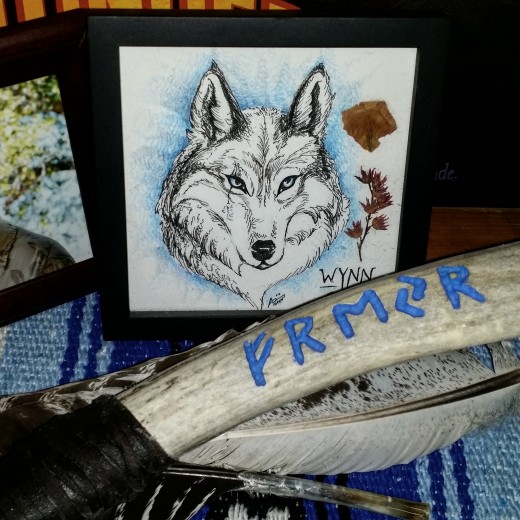
The (not so funny) joke goes that for every ten shamans, nine of them will claim Wolf as a totem (especially in Germanic Pagan paths), but it's a stereotype that only approaches reality in some circles. Wolves simply tend to attract wolves (and bears and boars tend to group up too, from what I've seen) but wolves do tend to be some of the loudest, proudest and most vocal (online and in person) shamans / pagans / etc. of any stripe. This is the "Opener of the Ways" side of the Wolf. (Consequently, we see this also in the Elk, Reindeer & Stag totems, but they all tend to be much quieter and much more insular, preferring the lonely paths to the rowdy packs.) As "Opener of the Ways," Wolf is very much a "loud shaman" kind of totem, and so Wolf-oriented people tend to really stand out in ways that make them seem very common.
The Takeaway:
Even if you aren't someone who feels the call of the wolf in your blood, consider the fact that, in Europe, "witches" (likely shamans) rode wolves before they rode distaffs or brooms. In the distant past, wolf-riding was a magical act of travel to other realms, and in that way, anyone on any spiritual path can work with Wolf to go further into their own practices-- even Christians and Christo-pagans, if it suits them. Wolf has always run alongside humanity, and can easily be a part of your practice in a minor or major way, however best suits you.
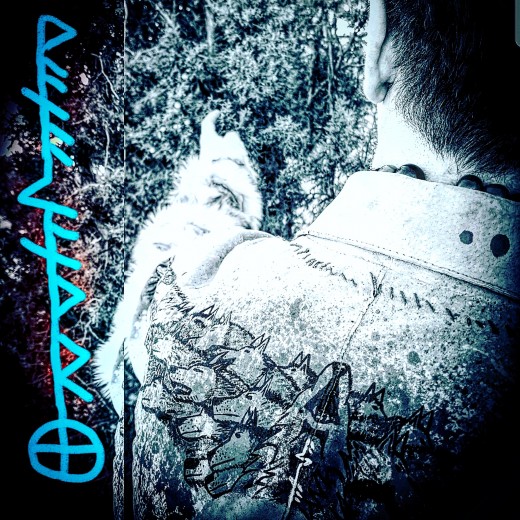
If you're one of those people who has felt the call of Wolf but hasn't answered back with your own howl because you're afraid of being made fun of, or because you've had a bad experience with someone who claimed Wolf was their totem, or because you're worried for any other reason, consider this your sign that it's okay to explore that side of yourself now. There can never be too many people working with Wolf as a totem, and it's certainly not first-come-first-served. The spirit of the pack is the same regardless of how many wolves there are.
What we should all avoid, however, is trivializing someone else's meaningful spiritual practice, regardless of who or what we work with. If you have time to judge or belittle or spread negativity, then you have time to work on your own practice and do meaningful positive acts in the world around you. Calling out "fluffy bunnies", or trying to re-direct someone from something they are passionate about that seems common to you is, in every way, inferior to actually focusing on yourself and your work as a spiritual person. If you feel the need to criticize someone's path, that shows not only insecurity, but weakness of character. Get something done instead. Make the world a better place, or at least broaden your own knowledge by reading a book on a subject you've never explored before. You might learn something that will humble you in the process.
© 2019 Earl S. Wynn

